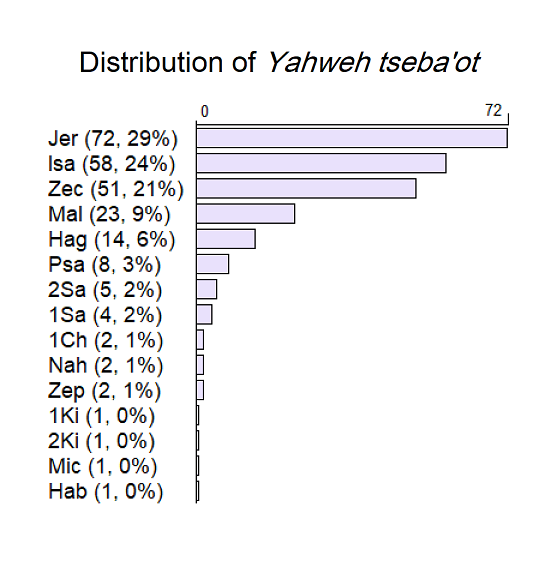
Translated as "Lord Almighty" or "Lord who rules over all" in newer translations, "the Lord of Hosts" translates Hebrew, YHWH tseba'ot. The idea of the title is tied to Yahweh as the Lord of all creation. Kol tseba'am is the noun translated "all their vast array" (NIV) in Gen 2:1 (NIV). In other translations, it is rendered "everything" (NET), "all their multitude" (NRS) but most of all "all their hosts" (KJV/AV, NASB, RSV, NRS, NKJ, ESV). These new translations are mostly influenced by the tendency among modern translators to shy away from language of violence. The Hebrew expression word, in all its various forms, occurs 500x in the OT, and in many places is used to refer to the fighting men, e.g., of Abimelek (Gen 21:22, 32; 26:26; ), Egypt (Exo 6:26; 7:4; 12:17), Israel (Num 1:3; 2:4; Deut 20:9; Jos 4:13; 2 Chron 28:9). In nearly half of the 500 occurrences, however, the noun is paired with YHWH, giving us a title for God and, traditionally, translated "the Lord of Hosts. Its primary emphasis is that Yahweh is the Almighty, who controlling all under heaven and earth, is He who fights on Israel behalf. The distribution of the expression in the Old Testament (see chart below) shows that it became increasing significant as Israel came increasing under the threat of external and international pressures at times when her own army was deminishing in power. In the prophets (where it is most widely used) the expression came to signal the dependence of Israel on the vast invisible armies that Yahweh could summon on her behalf.

Though the expression is not found in the New Testament, it has, nonetheless, found a cherished place in Christian culture through the great hymns of the Church, and perhaps no where more powerfully than in Martin Luther's Ein feste Burg ist unser Gott (Lord Sabaoth is found in Line 7 of Stanza 2), where he identifies Christ as our Lord of Hosts in whom our strength may confide. The hymn, as a whole, rather captures well the sense of what the Hebrew expression meant for the prophets.

©ALBERITH
170922lch